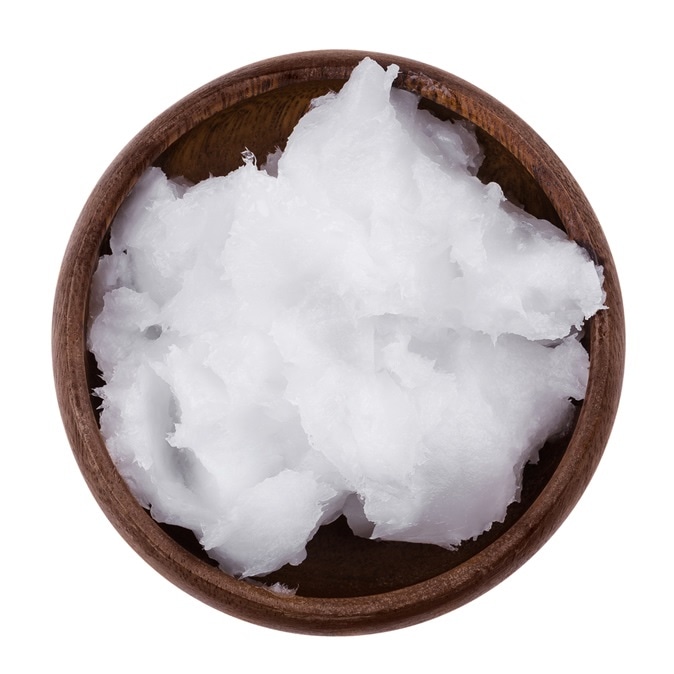According to a new report from the American Heart Association, the use of coconut oil in the diet may not be such a good idea as previously thought.
The report comes from the Dietary Fats and Cardiovascular Disease advisory that has looked into several existing research and data on saturated fats and has shown that coconut oil can significantly raise the “bad” cholesterol or LDL in the body. These results are seen in all the seven clinical trials that attempted to look into the effects of coconut oil diet. There is no significant difference between coconut oil and other oils that are notorious for high saturated fats such as butter, beef fat and palm oil. The report says that 82% of the fat present in coconut oil is saturated whereas butter has only 63% saturated fat, beef fat has 50% and pork lard 39%.

Coconut oil in a bowl - Image Credit: Peter Hermes Furian / Shutterstock
According to AHA recommendation, not more than 6% saturated fats should be consumed a day. Public Health England also advises that for men no more than 30g of saturated fat a day is advisable and for women no more than 20g of saturated fat a day is advisable. The AHA advises that the saturated fats when replaced by vegetable oils, groundnut oil, corn oil can reduce the risk of cardiovascular disease by 30%. This lowering is almost same as that achieved by a statin drug that is commonly used to lower cholesterol.
The American Heart Association in the advisory says that coconut oil increases LDL cholesterol and this in turn raises the risk of heart disease. Thus the use of coconut oil is not advised. According to Frank Sacks, lead author on the report, many people mistakenly believe that coconut oil is healthy. In fact it contains almost 100% fat. He speculates it could be the earlier weight loss studies that have provided these mistaken beliefs. A recent survey has shown that 72 percent of Americans believe coconut oil is healthy oil in diet and 37 percent of nutritionists also agree with this belief.
Marie-Pierre St-Onge, associate professor of nutritional medicine at Cornell University Medical School, said that her earlier study on coconut oil shows that this oil has high amounts of medium-chain triglycerides (MCT) compared to most other fats or oils. Studies have linked eating medium-chain triglycerides with raising rates of metabolism more than when compared with long-chain triglycerides. This study was the key one that promoted the fact that coconut oil consumption could reduce weight. But the problem with the study, say experts, is that coconut oil does not contain 100% MCTs, instead it has only 13 to 15% MCTs. Also smaller doses of MCTs do not reduce body weight in overweight teenagers according to her earlier study.
Replacement of the saturated fats in diet with sugars and refined carbohydrates does not reduce the rates of heart disease the report suggests. The report suggests lowering of the saturated fats in diet and replacing it with unsaturated fats or polyunsaturated fats that can lower risk of heart disease.
Sacks however said that coconut oil is good for skin and hair but doesn’t seem to be good in diet.
Cholesterol – Good and Bad
Cholesterol is found in some foods and is essential for several functions in the body. When in excess it tends to clog up the arteries of the heart and lead to atherosclerosis. Atherosclerosis or clogging up of the arteries leads to heart attacks and strokes. Low-density lipoprotein (LDL) cholesterol is considered the bad cholesterol as it can get deposited in the walls of arteries forming plaques and blockages. High-density lipoprotein (HDL) cholesterol is good cholesterol because it reduces the risk of heart disease by carrying away the bad cholesterol.